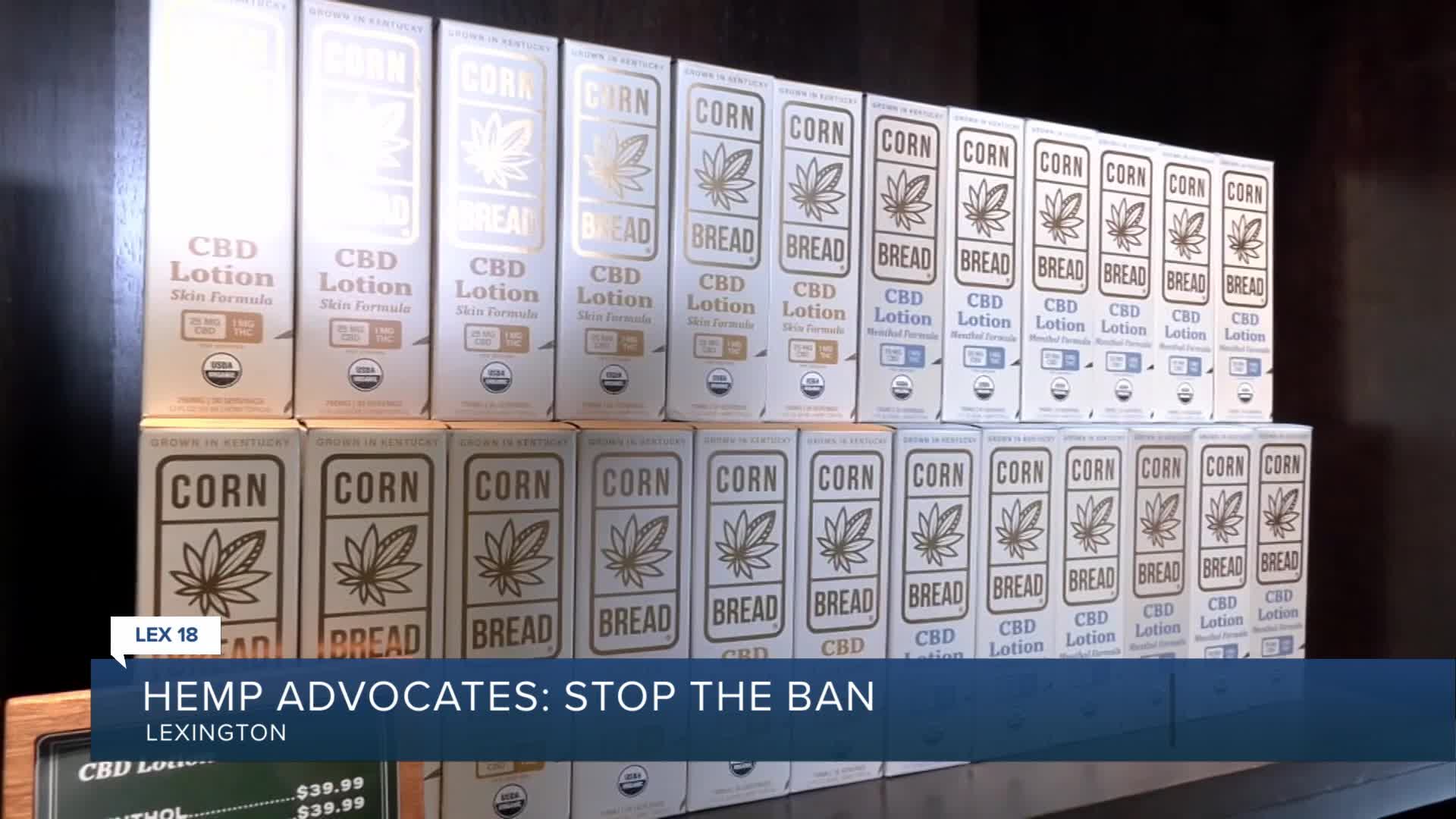Hemp advocates gathered outside Senator Mitch McConnell's Lexington office on Friday afternoon to protest a new federal provision that they believe will essentially kill the hemp industry in the United States.
The ban, included in Congress's bill to reopen the federal government, outlaws hemp products containing more than 0.4 milligrams of THC per container.
According to the Journal of Cannabis Research, a single hemp gummy typically contains 2.5 to 10 milligrams of THC.
"It's literally going to ban all of our products," said Dee Dee Taylor with the Kentucky Hemp Association.
Taylor explained that the new 0.4 milligram threshold will eliminate 95% of all hemp-derived products, effectively destroying the $28 billion industry.
"It's not right and it's not fair," Taylor said.
The hemp industry employs nearly 3,000 people in Kentucky, many of them are farmers.
Abram Phillips, a fifth-generation farmer from Owen County, said his family was able to move away from tobacco when they started growing hemp.
Phillips explained that tobacco farming is no longer financially viable for many Kentucky farmers.
"The tobacco's not worth it. If you're lucky, you may make a $1,000 an acre and that's not as much as it seems. You pay your tax on that and you're pretty much getting beer money or something," Phillips said.
So, Phillips says the hemp ban will be a big financial hit. The hemp ban goes into effect in one year. Kentucky advocates say they plan to use that time to convince Congress to regulate hemp rather than ban it entirely.
"We could easily solve all this by properly regulating it just like every other substance they consider intoxicating. You know, cigarettes, alcohol, medical marijuana's regulated in 40 states," Phillips said.
McConnell, who originally championed hemp legalization, has argued that the new restriction closes a loophole in the 2018 Farm Bill. That loophole allowed widespread safety issues from mislabeled and untested products to products with potency similar to recreational marijuana.
However, Kentucky hemp advocates maintain that those issues can be addressed through proper regulation rather than an outright ban.





